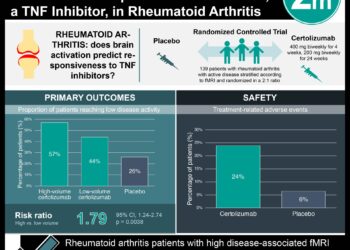Ten-minute behavioral counseling intervention targeting parents did not significantly reduce TV time for children
Image: PD
Key findings:
- A 10-minute counseling intervention to parents resulted in decreased number of meals eaten by children in front of the television after 1 year.
- The intervention did not reduce screen time, the study’s primary outcome measure.
Primer: It is commonly known that children are engaging in increased “screen time”, which is defined as time spent watching television, DVDs, videos, or playing computer or video games. Screen time has been associated with poor health outcomes, such as delayed language development, aggressive behaviour, cigarette smoking, and obesity. There is also increasing evidence that behaviors leading to obesity start in the preschool age.
This study aimed to evaluate an intervention targeting screen time in preschool children, as a potential means for reducing the aforementioned health outcomes and obesity. Two similar interventions have been previously conducted to reduce screen time in preschool children, but there was no significant reduction observed, and the studies were not implemented in a primary care practice setting.
For further reading, please see the following studies:
This [randomized, controlled] study: A total of 160 three-year old children were recruited from a community-based primary care practice in Toronto, Canada. The 80 parents in the intervention group received a 10-minute behavioural counseling intervention, including information on the health impact of screen time and encouragement of strategies to decrease screen time. These strategies included removing the television from the child’s bedroom, encouraging meals with the television off, and providing stickers to reward children for days without television. Meanwhile, the control group received a limited counseling session. The primary outcome was parent-reported screen time, while secondary outcome measures included 1) presence of television in child’s bedroom, 2) number of meals eaten in front of the television, and 3) adiposity measures such as BMI. Outcomes were measured at follow-up 1 year after the intervention.
Intention-to-treat analysis at 1 year showed no significant differences in mean total weekday minutes of screen time between the intervention and control groups. However, there was a reduction of >2 weekday meals in front of the television. Subjects in the intervention group also reported they were more likely to recommend the counseling intervention to others.
In sum: This study shows that even a brief (10-minute) counselling intervention to parents can have positive impacts in children after 1 year. Although a reduction in screen time was not observed, there may be value in reducing the number of meals eaten in front of the television. Limitations of the study include the counseling session of the control group, which was not standardized nor monitored, and which may have diluted the relative effectiveness of the intervention group.
From a health economics perspective, this study may be representative of a cost-effective intervention with positive outcomes. Although the study did not reduce screen time after 1 year, there may have been a significant reduction in screen time after the intervention that did not persist. Alternative or additional interventions may be warranted to reduce screen time in children, especially in the early preschool age and in a primary care setting, where interventions may have a more effective impact in the long-term.
Please click to read in Pediatrics
Written by [GL] and [AC]
© 2012 2minutemedicine.com. All rights reserved. No works may be reproduced without written consent from 2minutemedicine.com. DISCLAIMER: Posts are not medical advice and are not intended as such. Please see a healthcare professional if you seek medical advice.




